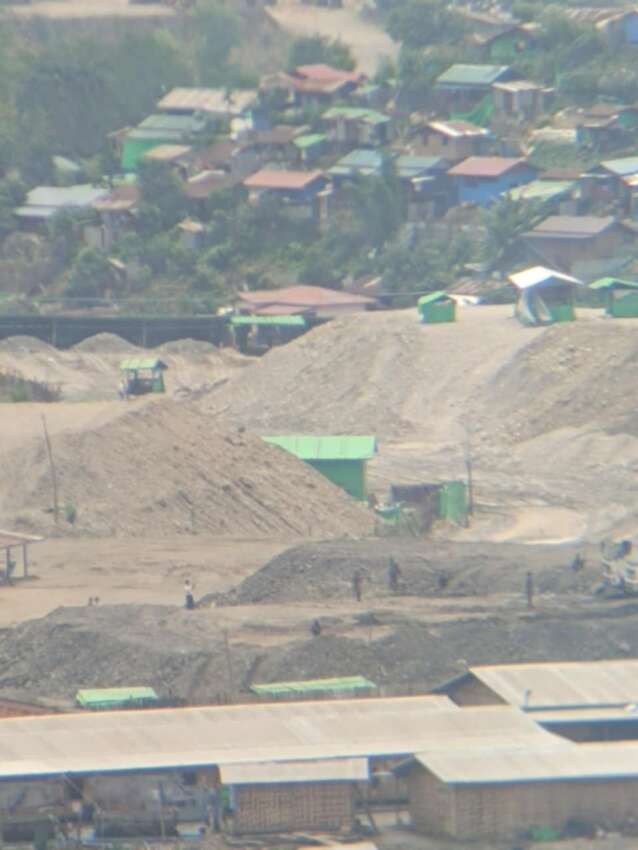
The military council’s offensive operations in Hpakant Township, Kachin State, which began in late May, have resulted in intense fighting across the region. Colonel Naw Bu, spokesperson for the Kachin Independence Organization (KIO), has revealed three main objectives behind the military council’s offensive operations. First, to cut off the revenue streams of the KIO/KIA and other revolutionary armed groups; second, to regain control of strategically important security outposts; and third, to establish polling stations for their upcoming election. These military operations have significantly impacted the region and its civilian population.
The military council forces have split into multiple columns throughout Hpakant, entering jade mining areas and conducting arrests, killings, arson attacks, artillery strikes, and creating continuous confrontations. The military operations began on the evening of May 27, entering through Lonkhin village, and have continued to this day with daily clashes, including airstrikes using fighter jets. As a result of these military council operations over the past two months, nearly 50 civilians have been killed and more than 100 injured, according to local residents. The military council’s aggressive campaign has caused widespread destruction and displacement in the area, with continuous reports of human rights violations and civilian casualties.
While the KIO has not issued an official statement regarding the military council’s election plans, Colonel Naw Bu has explicitly stated that they will not allow the establishment of polling stations within KIO-controlled territories. The military council is attempting to control the Hpakant region with large-scale forces, aiming to cut off the economic resources of revolutionary forces in the area. Analysts note that beyond the immediate military objectives, the operation appears to be part of a broader strategy to secure territorial control for their planned election. The ongoing offensive has highlighted the military council’s multi-faceted approach to suppressing resistance forces while attempting to establish administrative control over this strategically important region, known for its valuable jade deposits and significant economic potential.



